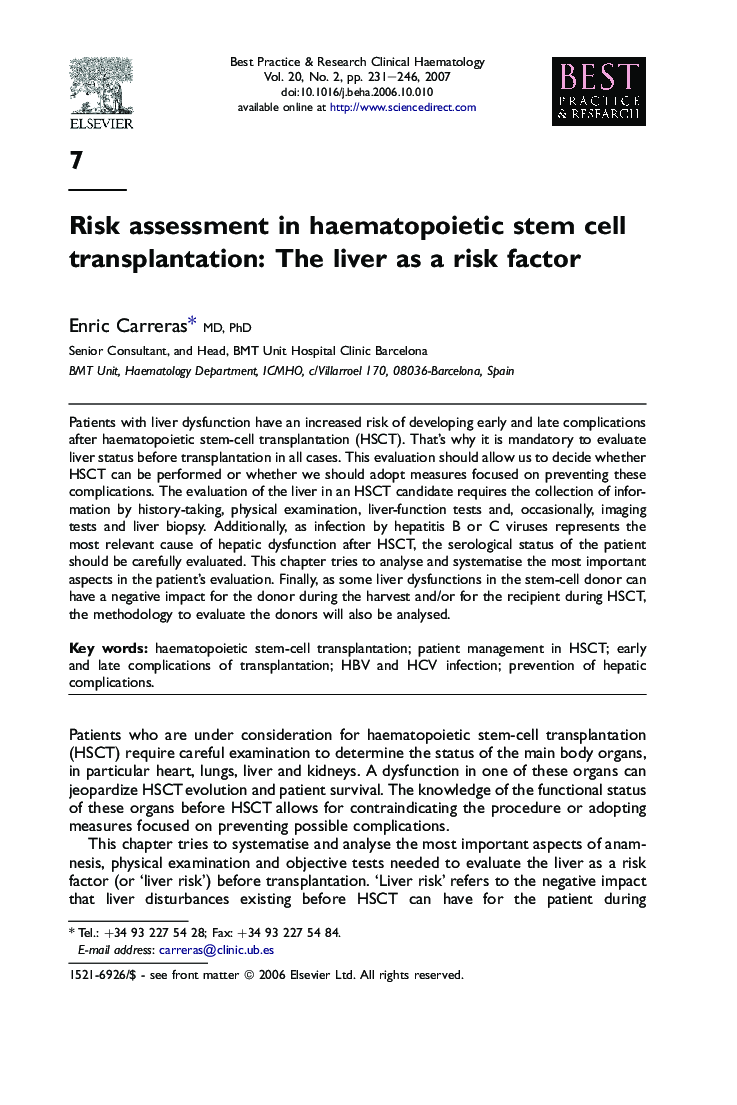| Article ID | Journal | Published Year | Pages | File Type |
|---|---|---|---|---|
| 2100565 | Best Practice & Research Clinical Haematology | 2007 | 16 Pages |
Patients with liver dysfunction have an increased risk of developing early and late complications after haematopoietic stem-cell transplantation (HSCT). That's why it is mandatory to evaluate liver status before transplantation in all cases. This evaluation should allow us to decide whether HSCT can be performed or whether we should adopt measures focused on preventing these complications. The evaluation of the liver in an HSCT candidate requires the collection of information by history-taking, physical examination, liver-function tests and, occasionally, imaging tests and liver biopsy. Additionally, as infection by hepatitis B or C viruses represents the most relevant cause of hepatic dysfunction after HSCT, the serological status of the patient should be carefully evaluated. This chapter tries to analyse and systematise the most important aspects in the patient's evaluation. Finally, as some liver dysfunctions in the stem-cell donor can have a negative impact for the donor during the harvest and/or for the recipient during HSCT, the methodology to evaluate the donors will also be analysed.
